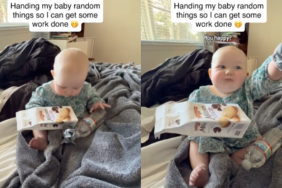If kids say the darndest things, you should hear their moms talk. Who hasn’t been on the receiving end of a passive-aggressive comment, insensitive remark, or unfunny joke uttered by a fellow mother? Unfortunately, when those comments, remarks, or jokes revolve around infertility, they can do lasting damage to one’s self-worth and confidence. Secondary infertility is a particularly touchy topic, one that you would be wise to withhold your opinions on.
We’ll look at why this serious and insidious problem deserves the utmost respect when it comes up in conversation. Also, we’ll share particularly offensive statements regarding secondary infertility that you should avoid voicing at all costs.
What is secondary infertility?
Secondary infertility is when a woman cannot conceive or carry a pregnancy to term, despite having had one or more children in the past.
According to the CDC, secondary infertility affects women at about the same rate as first-time (or primary) infertility. In simplest terms, about 12% of moms trying for another child have trouble conceiving. Chances are, there’s someone in your circle of moms struggling with secondary infertility right now.
Fertility challenges can be uniquely devastating for moms who had no trouble conceiving their first child. Moms experiencing this unique fertility challenge may feel confused, frustrated, and isolated. Unfortunately, many people are unaware of the impact that secondary infertility can have on a woman and may say insensitive things without realizing the hurt they are causing.
So before you comment on a friend, family member, or acquaintance’s family structure, scan the list below and make sure none of these phrases come out of your mouth.
“You already have a child. Why do you want more?”
Everyone’s family size is profoundly personal and carries meaning others may not understand. It is not anyone’s job to be the reproduction police. While one child may be enough for one mom, another mom may feel like her family is incomplete without two, three, four, or more kids.
“Maybe it’s not meant to be.”
Who died and made you the almighty fertility judge? Let’s stop trying to decipher how nature, fate, or the powers that be are working in every mom’s womb.
“Maybe you’re too old to have another child.”
While age can be a factor in infertility, young moms experience secondary infertility, too. No woman needs a reminder that she’s aging; society reminds us all the goddamn time. That said, women also become pregnant in their 40s (and beyond), either spontaneously or with the help of fertility treatments. Thanks to science, age isn’t the be-all-end-all in fertility like it used to be.
“Why don’t you try IVF?”
How do you know this mom hasn’t tried that already? Or that she’s explored it and decided it isn’t right for her? Trust us that moms experiencing something like secondary infertility have already out-Googled you, consulted specialists, and have tried everything that they are willing and/or able to. They don’t need your unhelpful (and blatantly obvious) suggestions.
“Why don’t you just adopt?”
Adoption is a beautiful family-building option, but it is not for everyone and does not “solve” infertility. Adoption can be an emotionally grueling and expensive process. It also often takes years. For some moms, maintaining a genetic connection to a child and their sibling(s), or the desire to carry a baby and give birth, are dealbreakers. Factors like these might mean adoption isn’t a good fit for them.
“Have you considered a surrogate?”
Surrogacy is a complex process with many potential ethical, genetic, and emotional concerns. As with adoption, it isn’t right (or even feasible) for everyone. There’s nothing simple about surrogacy, and to suggest it’s a quick fix to infertility is naive.
“You’re lucky to have one child; some people can’t even have one”
While it is true that every child is a blessing, associating luck with fertility is problematic. Also, just because a mom has one child doesn’t mean she considers her family complete. As for the second half of this tone-deaf comment? Playing the “suffering Olympics” has never helped anyone feel better.
“You shouldn’t have waited so long to have another child.”
How or why parents space their children apart is no one’s business. For all you know, maybe the mom in question has been trying to conceive again for years. Maybe she got pregnant and had a miscarriage or needed to terminate the pregnancy. Don’t assume you know anything about anyone’s reproductive history.
“Have you tried this position/that position?”
This personal and invasive question makes for a painfully uncomfortable and inappropriate vibe. Save the sex tips for your blog.
“Just relax. It will happen.”
Infertility is a medical condition. Would you tell someone diagnosed with cancer to “just relax” until their tumor went away? Of course not. Telling a mom with secondary infertility to “just relax” dismisses their right to have feelings about the situation. This statement not only places the blame on them but also suggests that their state of mind is all that’s standing between them and another pregnancy.
“I know a mom who had the same issue and…”
We’ve all heard the urban myth about the 49-year-old mom with only one egg left who went on some crazy juice fast, started meditating, and suddenly got pregnant spontaneously — even though her husband had a vasectomy! These outlandish stories intend to inspire, but they do the exact opposite. While miracles certainly happen, these outrageous tales often make moms feel even more hopeless because the miracle hasn’t happened to them yet.
What should you say instead?
Secondary infertility is a complex and emotionally challenging experience that requires support and empathy from friends, family, and healthcare providers. It is essential to avoid making insensitive comments or offering unsolicited advice. If you don’t know what to say, try, “I’m sorry this is happening to you,” “This sucks,” or “I’m here for you no matter what.” Sometimes, saying nothing at all — and instead offering a listening ear or a shoulder to cry on — can be more meaningful and supportive than the most thoughtful phrase in the world.








